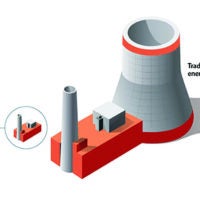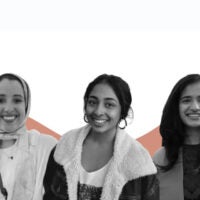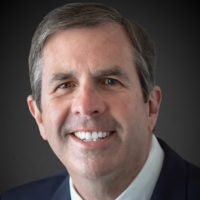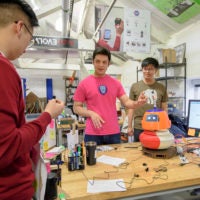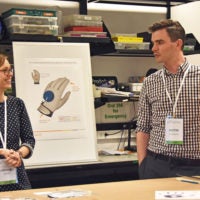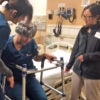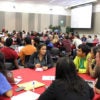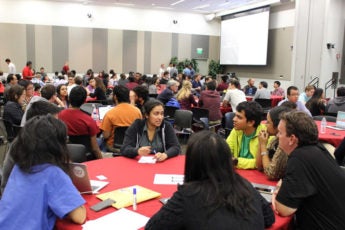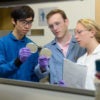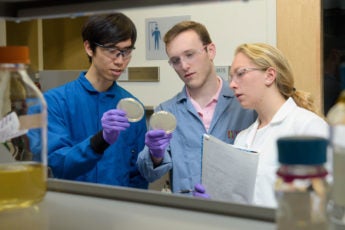Entrepreneurship at Stanford
For more than half a century, Stanford University has incubated ideas, educated entrepreneurs and fostered breakthrough technologies that have been instrumental in the rise and constant regeneration of Silicon Valley and have contributed to the broader global economy. A 2012 study estimated that companies formed by Stanford entrepreneurs generate world revenues of $2.7 trillion annually and have created 5.4 million jobs since the 1930s. Stanford alumni and faculty have created 39,900 companies since the 1930s, which, if gathered collectively into an independent nation, would constitute the world’s 10th largest economy.
Stanford Technology Ventures Program
As the entrepreneurship center in Stanford’s School of Engineering, the Stanford Technology Ventures Program delivers courses and extracurricular programs to Stanford students, creates scholarly research on high-impact technology ventures, and produces a large and growing collection of online content and experiences for people around the world.
Graduate School of Business
Stanford Graduate School of Business believes entrepreneurship in the hands of innovators can drive regional economic growth. GSB’s global, on-campus, and online programs enable high-potential individuals to commercialize their business ideas, and give established entrepreneurs the tools to take their ventures to the next level.
Global Entrepreneurship Summit 2016
GES 2016, to be held at Stanford June 22-24, aims to showcase inspiring entrepreneurs and investors from around the world creating new opportunities for investment, partnership, and collaboration; connect American entrepreneurs and investors with international counterparts to form lasting relationships; and highlight entrepreneurship as means to address some of the most intractable global challenges.
Read about entrepreneurship at Stanford
Stanford entrepreneurship experts
Jesper B. Sørensen, professor of organizational behavior; director of Seed, the Stanford Institute for Innovation in Developing Economies; faculty co-leader of the Global Entrepreneurship Summit (GES)
- Specializes in organizational behavior
- Regional expertise: Africa and developing economies
Thomas Byers, entrepreneurship professor of management science and engineering; faculty director of the Stanford Technology Ventures Program
- Specializes in education regarding high-growth entrepreneurship and technology innovation
Hayagreeva “Huggy” Rao, professor of organizational behavior and human resources
- Specializes in organizational behavior, scaling growing ventures, human resources
- Regional expertise: India
Fern Mandelbaum, lecturer in management; teaches the MBA course Entrepreneurship from the Perspective of Women
- Specializes in creating and growing technology-focused businesses primarily in the consumer internet, mobile, media and software
Jonathan Levav, associate professor of marketing; director of the Stanford Ignite-Santiago program
- Specializes in consumer behavior and behavioral decision theory
- Speaks Spanish
Kenji Kushida, research associate at the Freeman Spogli Institute for International Studies
- Specializes in economics, business, information technology and entrepreneurship
- Regional expertise: Japan
Tina Seelig, professor of the practice in management science and engineering; faculty director of the Stanford Technology Ventures Program
- Specializes in creativity, innovation and entrepreneurship
Arun Majumdar, professor of mechanical engineering; co-director of the Precourt Institute for Energy
- Specializes in thermoelectrics, thermochemical production of hydrogen from water, and transforming the electricity grid
- Expertise in commercializing early-stage clean energy technologies
- Regional expertise: India
Richard Dasher, consulting professor of electrical engineering and of East Asian languages and cultures; director of the US-Asia Technology Management Center; leads the seminar Entrepreneurship in Asian High-Tech Industries
- Specializes in technology management, innovation systems and the impact of new technologies on industry structure and dynamics
Sally M. Benson, professor of energy resources engineering; co-director of the Precourt Institute for Energy; director of the Global Climate & Energy Project
- Specializes in carbon capture and sequestration, and in analysis of emerging energy technologies
- Expertise in assessing energy challenges, opportunities and strategies for industrialized, emerging and developing economies
James Lattin, professor of marketing; director of the Stanford Ignite-Bangalore program
- Specializes in consumer choice behavior
- Regional expertise: India
Michael McFaul, professor of political science; director of the Freeman Spogli Institute for International Studies; senior fellow at the Hoover Institution
- Specializes in diplomacy and foreign policy and its relationship to entrepreneurship to reducing international conflict
Grant Miller, associate professor of medicine; senior fellow at the Freeman Spogli Institute for International Studies; senior fellow at the Stanford Institute for Economic Policy Research
- Specializes in international development and health
Baba Shiv, professor of marketing; go•to•market program in entrepreneurship in Mexico
- Specializes in neuroeconomics, with specific emphasis on the role of neural structures related to emotion and motivation in shaping decisions and experiences
- Regional expertise: India
William Miller, professor of public and private management, emeritus; professor of computer science, emeritus; senior fellow emeritus, Freeman Spogli Institute for International Studies
- Specializes in entrepreneurial ecology, regions of innovation and entrepreneurship
- Regional expertise: Asia, especially Japan, Korea, China, Taiwan and Malaysia
Marshall Burke, assistant professor of Earth system science
- Specializes in how changes in environmental conditions affect social and economic outcomes
Paul Yock, professor of bioengineering and of medicine, director of the Byers Center for Biodesign
- Specializes in biomedical device innovation
- Expertise in training young entrepreneurs
Yossi Feinberg, professor of economics at the Graduate School of Business; faculty director, Stanford Ignite
- Specializes in economics, game theory and corporate innovation
Stefanos Zenios, professor of entrepreneurship; professor of operations, information and technology; director of the Center for Entrepreneurial Studies
- Specializes in innovation and health care
Amy Wilkinson, lecturer in management
- Specializes in entrepreneurial skills, innovation and international business and trade
- Regional expertise: Latin America
Joseph Piotroski, associate professor of accounting; director of the Stanford Ignite-Beijing program
- Specializes in financial reporting issues
- Regional expertise: China
Shai Bernstein, assistant professor of finance
- Specializes in corporate finance, entrepreneurial finance and early stage investors
Hau Lee, professor of operations, information and technology
- Specializes in the global supply chain and the entrepreneur
- Regional expertise: China/Hong Kong
Lindred Greer, assistant professor of organizational behavior
- Specializes in managing teams, team performance and entrepreneurship from a social psychology perspective
Sarah Soule, professor of organizational behavior
- Specializes in design-thinking and social innovation
Katherine Casey, assistant professor of political economy
- Specializes in economic and political forces in developing countries
- Regional expertise: Sub-Saharan Africa
Melanie Morten, assistant professor of economics
- Specializes in how households respond to risk in developing countries and the effects of migration
Nicholas Bloom, professor of economics; co-director of the Productivity, Innovation and Entrepreneurship program at the National Bureau of Economic Research
- Specializes in measurement and management practices
Marcel Fafchamps, senior fellow at the Stanford Institute for Economic Policy Research
- Specializes in economic development, market institutions and entrepreneurship
- Regional expertise: Africa, South Asia


